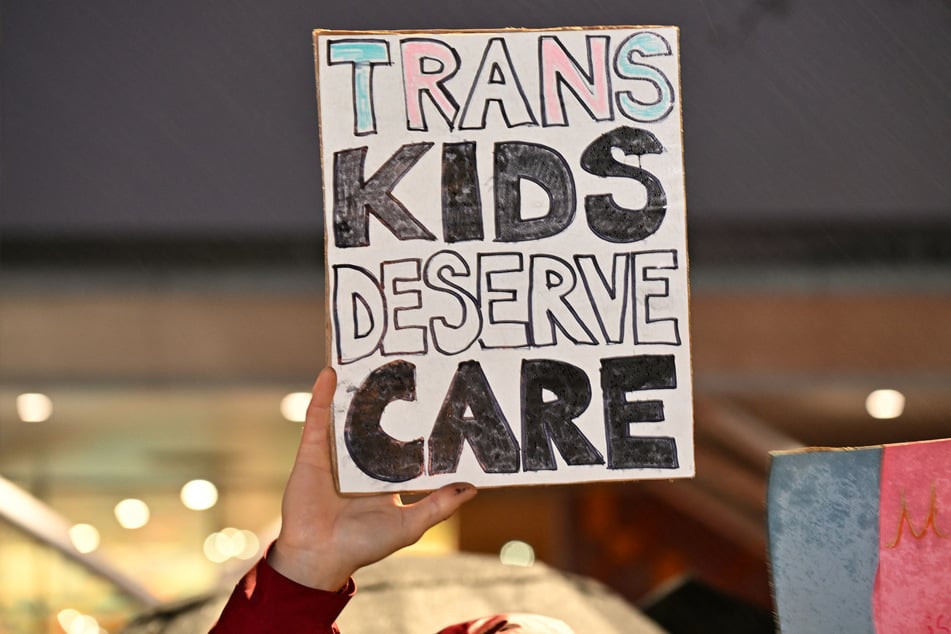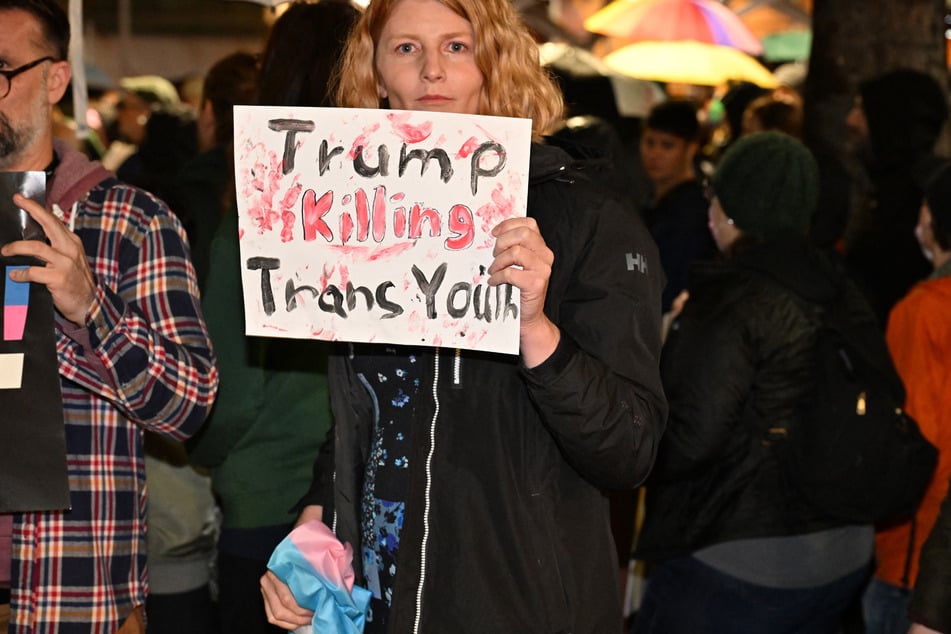Trump administration's report on gender-affirming care slammed as "propaganda"
Washington DC - President Donald Trump's administration on Thursday released what it described as a comprehensive review of gender-related medical interventions for children and adolescents, warning of "significant risks" associated with puberty blockers and surgeries.

The 400-page report was issued without named authors – a departure from scientific norms but nonetheless defended by the Department of Health and Human Services as a measure "to help maintain the integrity of this process."
Youth gender-affirming care is a highly polarizing issue in many countries, with medical professionals seeking to strike a balance between alleviating psychological distress, respecting patient autonomy, and ensuring that interventions are evidence-based and appropriate for developing bodies and minds.
But the Trump administration's record of hostility toward transgender people – including efforts to ban them from the military and erase language around gender identity from official documents – has raised questions about the objectivity of the review.
The report states that gender-affirming treatments carry risks "including infertility/sterility, sexual dysfunction, impaired bone density accrual, adverse cognitive impacts, cardiovascular disease and metabolic disorders, psychiatric disorders, surgical complications, and regret."
"Our duty is to protect our nation's children – not expose them to unproven and irreversible medical interventions," said Jay Bhattacharya, director of the National Institutes of Health. "We must follow the gold standard of science, not activist agendas."
Aisha Mays, a family physician in California and member of the nonprofit Physicians for Reproductive Health, called the report "propaganda" that aimed "to delegitimize the perfectly safe, effective, and evidence-based health care that transgender people access to be who they are."
"Being transgender, just like being cisgender, is not a choice nor can it be reversed by any medical or social method," she added. "The same way cisgender people know who they are, so do trans people. The same way cis people receive gender-affirming care, so do trans people."
American Academy of Pediatrics "deeply alarmed" by Trump administration's report

While Health Secretary and noted vaccine skeptic Robert F. Kennedy, Jr., has drawn scrutiny for brash statements at odds with scientific consensus, the report itself is largely written in sober, academic prose and heavily cites medical literature.
Still, it levels strong accusations – most notably against US medical associations, which it claims "may impede or even oppose evidence-based medicine when the professional or financial interests of their members are threatened by medical practice reversal."
The report also denounces terms like "assigned sex at birth," arguing that it "suggests an arbitrary decision – not unlike 'assigned seating' – rather than the observation of a characteristic present long before birth, namely the child's sex."
Its release follows a landmark review in the United Kingdom last year, led by retired pediatrician Hilary Cass, which urged "extreme caution" in prescribing hormone therapies to youth.
The American Academy of Pediatrics, which supports access to medically necessary gender-affirming care and opposes legislation that restricts it, said it was "deeply alarmed" by the US report.
"For such an analysis to carry credibility, it must consider the totality of available data and the full spectrum of clinical outcomes rather than relying on select perspectives and a narrow set of data," the group said, adding that its own guidelines were misrepresented.
Despite intensifying political rhetoric, data show gender-affirming care among minors remains rare.
A study in JAMA Network Open found that gender-affirming surgery occurred at a rate of 5.3 per 100,000 among adults, compared to 2.1 per 100,000 among minors aged 15 to 17; 0.1 among those aged 13 to 14; and zero cases among children 12 or younger.
Another recent JAMA Pediatrics study reported that fewer than 0.1% of privately insured minors with a transgender or gender-diverse diagnosis received puberty blockers or hormones – and none were under 12.
Cover photo: Robyn Beck / AFP

